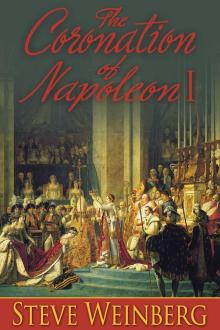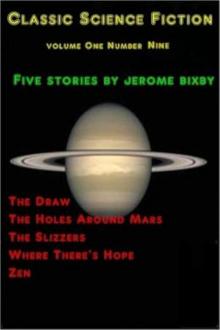The Coronation of Napoleon I


Author: Steve Weinberg
Category: Science
Published: 2015
Series:
View: 162
Read OnlineIf a tree falls in a forest and no one hears it, does it make a sound? When Napoleon crowned himself Emperor, the magnitude of the spectacle was evident to every witness. But did it matter to, let us say, the Siberian farmer who died shortly thereafter, never hearing of the day? This story of Napoleon’s coronation blends philosophy and history to answer the most profound of existential questions.If a tree falls in a forest and no one hears it, does it make a sound? This ancient philosophical question is not typically associated with Napoleon’s Coronation Day. But perhaps it should be. With the twenty-first century now firmly underway, the meaning, purpose, and raison d’être for life has been repeatedly, violently, relentlessly undermined from all sides. It is said today, quite routinely, that our universe has been around for 13 billion years and that, indeed, the sun is just one of billions of stars in our galaxy, and that our galaxy is just one of billions in the universe. Still more, it is said that each one of these innumerable stars has its own set of planets, leaving our Earth as, to put it gently, just one of many. Indeed, as Freud posited, mankind has suffered three cruel blows upon its “naïve self-love” in modern times. The first came from Copernicus, who showed that the Earth was not the center of the universe, but rather “only a tiny speck in a world-system of a magnitude hardly conceivable.” The second came from Darwin, who theorized that the human species did not have the “peculiar privilege” of having been specially created, but had instead descended from “the animal world.” And the third insufferable blow, Freud proudly stated, had come from himself and his theory that man is not even “master of his own house,” and must live in ignorance of the powerful unconscious forces that motivate his everyday actions. With this backdrop in mind, the Coronation of Napoleon I, the grandest day Europe has ever known, begins to seem trivial and insignificant. It is naturally presumed that a day of such fanfare, jubilation, pomp, and historical importance is, in fact, an inherently special day. But, if Coronation Day were to be put under a microscope, we might find the moment robbed of its preciousness, aimless rather than select. The Eiffel Tower, the Musée du Louvre, and the epithet “City of Love,” all seem forever inseparable from Paris itself. But perhaps this “Paris” is a veneer, behind which is nothing more than a landmass with unimpressive hills, traversed by a meandering river, all resting rather stably atop a vast tectonic plate. In the same manner, it appears God-given that Napoleon Bonaparte was intrinsically greater than other men, and that his title of Emperor of France is as unchallengeable as Newton’s Third Law. But on the other hand, to reference Darwin above, Napoleon is perhaps less a preordained Übermensch than just another “descendant” from the animal kingdom. Immanuel Kant, the greatest philosopher of the German Enlightenment, developed an epistemological theory which speaks to this question. Kant held that the human mind, as it experiences the world, is working actively, tirelessly, to construct meaning from sensory input which is otherwise adrift, purposeless, and nonsensical. The implication here is, of course, that the world does not contain categorical meaning, but that significance only arises when our minds experience this free-floating stimuli and instinctively construct purpose to it. In short, if a tree falls in a forest and no one hears it, it does not make a sound. “The Coronation of Napoleon I,” however, offers an alternative. As it takes its reader through the magnificent day of Napoleon’s Coronation, the short story examines this legendary crowning from a multitude of perspectives. By the end of the tale, one might become persuaded (or perhaps not), that the joyous cries and triumphant music coming from Notre-Dame Cathedral, Paris, on the Second of December, 1804, did, in fact, echo to all corners of the cosmos, even if the mere sounds themselves never extended beyond the city’s borders.
 The Draw
The Draw The Nocturnal Voice
The Nocturnal Voice Two Tribes
Two Tribes Amun Sa and the Girl from the Desert
Amun Sa and the Girl from the Desert Dark Star
Dark Star The Day of the Dissonance
The Day of the Dissonance The Adjacent
The Adjacent Phoenix Everlasting
Phoenix Everlasting